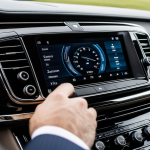Understanding Performance Chips for Turbocharged Cars
Performance chips are aftermarket devices designed to enhance a turbocharged car’s engine by modifying its control software. They work by altering parameters such as fuel injection timing, boost pressure, and ignition timing. In turbocharged car upgrades, performance chips aim to optimize these settings to extract more power and torque without physically changing engine hardware.
People often install performance chips to gain quicker acceleration, improved throttle response, and higher overall engine efficiency. However, understanding how performance chips work is crucial. They intercept and rewrite data in the engine control unit (ECU), bypassing factory limits to unlock additional performance margins stifled by conservative stock settings.
While manufacturers tune engines for durability, emissions, and fuel economy, performance chips push these boundaries. This often results in noticeable power gains, but the promised benefits may not always align with real-world outcomes. Gains depend heavily on the quality of the chip and compatibility with the specific turbocharged setup.
A well-designed chip can fine-tune air-fuel ratios and boost levels to enhance performance efficiently. Yet, it’s important to recognize performance chips differ significantly from standard engine tuning done by professionals, which adjusts parameters based on detailed diagnostics and custom calibration rather than preset firmware changes.
In parallel : Navigate UK Traffic Rules: The Role of Dashboard Cameras in Boosting Road Safety
Key Risks Associated with Performance Chips
Performance chips can boost your turbocharged car’s power, but the risks of performance chips merit close attention. Altering engine parameters like boost pressure and fuel mapping can push components beyond their design limits. This can lead to engine damage or accelerated wear, particularly if the chip’s tuning is aggressive or poorly matched to the motor’s specifications.
A common turbocharged car problem associated with performance chips is increased cylinder pressure, which may cause piston stress or even failure over time. Running richer air-fuel ratios to compensate for higher boost might reduce overheating but can foul spark plugs and degrade exhaust components. Also, turbochargers themselves might suffer from excess heat or mechanical strain when pushed by chip-induced settings.
Automakers frequently caution about warranty voidance when chips are installed. Manufacturers design their ECUs with conservative safety margins to balance power, emissions, and durability. When these limits are overridden, warranties often become invalid, leaving owners financially exposed to repairs stemming from chip-related faults.
In summary, understanding the delicate balance between performance enhancement and engine reliability is key. While chips deliver tempting gains, they introduce notable risks of performance chips and potential turbocharged car problems that should not be overlooked.
Understanding Performance Chips for Turbocharged Cars
Performance chips are specialized devices that modify the engine control unit (ECU) software to improve a turbocharged car’s output. They function by intercepting and reprogramming signals related to fuel delivery, ignition timing, and boost pressure. This recalibration allows turbocharged car upgrades to push engine components closer to their performance limits, which factory settings often restrain.
Why do enthusiasts install performance chips? Mainly, to achieve quicker throttle response, improved acceleration, and sometimes better fuel efficiency under certain conditions. Unlike traditional engine tuning done by professionals, performance chips generally use predefined software maps rather than custom diagnostics, which can limit their precision but make installation simpler and more affordable.
The promised benefits focus on increased horsepower and torque without changing hardware. However, real-world gains can vary greatly depending on the chip’s quality and compatibility with the vehicle’s turbo system. For example, a chip designed specifically for a particular turbo model will optimize air-fuel ratios and boost pressure more effectively than a generic one. This fine-tuning can unlock power previously restricted by conservative factory limits, delivering tangible performance improvements when done correctly.
Understanding Performance Chips for Turbocharged Cars
Performance chips function by adjusting the turbocharged car’s ECU software to improve engine output. They modify core parameters such as fuel delivery, ignition timing, and boost pressure to push the engine beyond factory limits. This recalibration is key to turbocharged car upgrades, as it allows the engine to produce greater horsepower and torque without hardware modifications.
Common reasons for installing performance chips include achieving faster throttle response, improved acceleration, and sometimes better fuel economy under specific driving conditions. Unlike traditional tuning by professionals, which involves custom diagnostics and real-time calibration, performance chips operate based on preset maps. While this approach is less precise, it makes installation simpler and more cost-effective.
How performance chips work in practice involves intercepting ECU signals and rewriting them to lift conservative restrictions set by manufacturers. However, the promised benefits of increased power and efficiency can vary widely depending on the chip’s design and compatibility with the turbo system. A chip tailored for a specific turbocharged car model will more effectively optimize air-fuel ratios and boost levels than generic options, delivering noticeable performance gains when properly matched.





